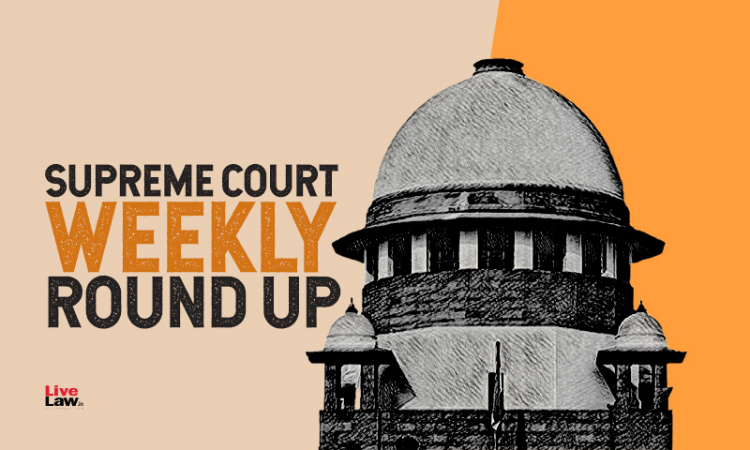Supreme Court Weekly Round Up- November 22 To November 28, 2021
Nupur Thapliyal
28 Nov 2021 9:41 AM IST

Next Story
28 Nov 2021 9:41 AM IST
JUDGMENTS THIS WEEK1. Arbitrator Cannot Modify Award On An Application Under Section 33 Arbitration Act: Supreme CourtCase name: Gyan Prakash Arya vs Titan Industries Limited Citation: LL 2021 SC 669The Supreme Court observed that an Arbitrator cannot modify an Arbitration award on an application filed under Section 33 of the Arbitration and Conciliation Act. Only in a case of...
